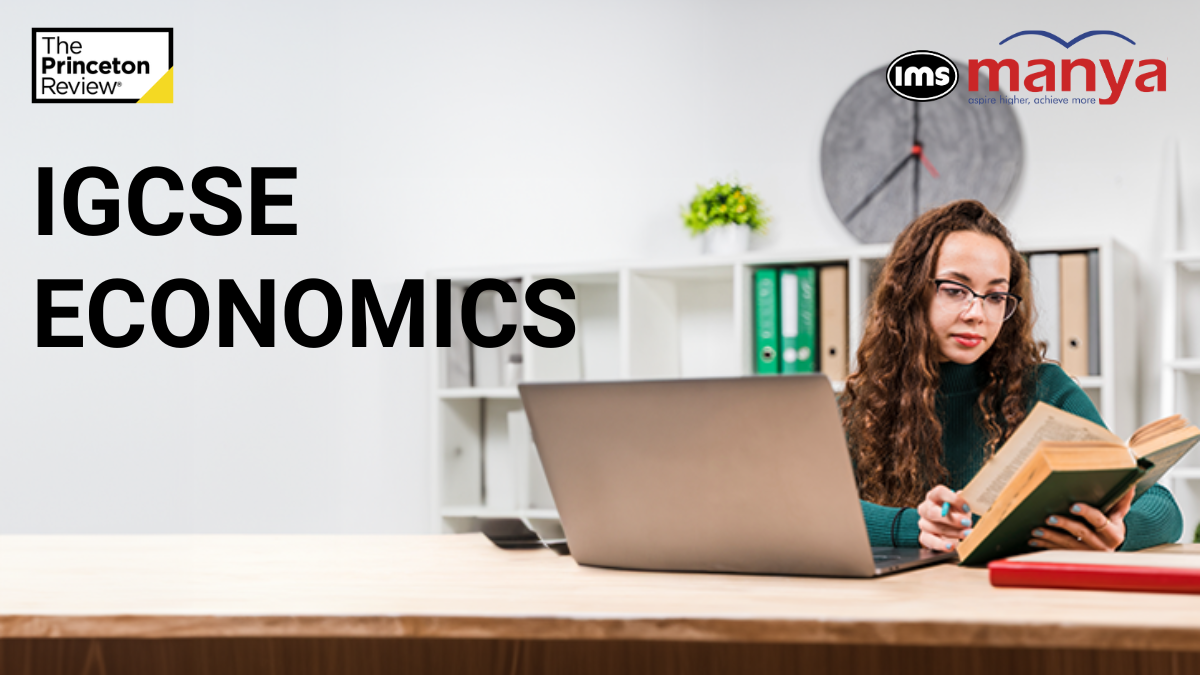IGCSE Economics: Syllabus, Key Concepts & Exam Preparation

IGCSE Online Academic Tutoring for Economics students to gain an understanding of economic theory, terminology, and principles. IGCSE Economics online tutoring enables learners to explore how different nations apply economic strategies and how these influence global economic interdependence. Through structured lessons and hands-on practice, students also gain essential skills in analyzing and interpreting various forms of economic data using recognized economic tools.
The IGCSE Economics syllabus is divided into six core topics:
- The Basic Economic Problem
- The Allocation of Resources
- Microeconomic Decision Makers
- Government and The Macroeconomy
- Economic Development
- International Trade and Globalization
This well-rounded economic IGCSE syllabus develops core economic literacy and numeracy skills crucial for everyday decision-making. Students work with real-world examples from diverse economies and learn to draw meaningful conclusions from data analysis. Alongside regular lessons, students are guided through IGCSE economics past papers, provided with concise IGCSE Economics notes, and supported with recommended IGCSE Economics textbooks, making it the perfect foundation for advanced studies in the subject.
Syllabus at a Glance
The IGCSE Economics syllabus offers a comprehensive overview of core economic concepts, global trade, and real-world applications. Aligned with the economic IGCSE syllabus framework, this course helps students build a strong foundation in theory and analysis.
With a clear structure supported by IGCSE Economics notes, textbooks, and practice using IGCSE Economics past papers, learners gain the skills needed to succeed in exams and further studies.
| Section | Topics Covered |
| Choice and resource allocation are fundamental economic problems | – Economic problem
– Factors of production – Opportunity cost – Resource allocation – Choice – Production possibility curves |
| The allocation of resources; the operation of the market; market failure | – Market and mixed economic systems
– Demand and supply analysis – Price elasticity – Market failure – Social and private costs and benefits |
| Individuals act as producers, consumers, and borrowers | – Functions of money
– Exchange – Central banks, stock exchanges, and commercial banks – Labour market – Motives for spending, saving, and borrowing |
| As a producer and employer, the private firm | – Types and sizes of business organisation
– Demand for factors of production – Costs and revenue – Profit maximisation and other business goals – Perfect competition – Monopoly – Advantages and disadvantages of increased scale |
| The Government’s Role in the Economy | – Government as a producer and an employer
– Aims of government economic policy – Fiscal, monetary, and supply-side policies – Types of taxation – Possible policy conflicts – Government influence on private producers |
| Indicators of the economy | – Price indices
– Inflation and deflation – Employment and unemployment – GDP, economic growth, and recession – GDP and other measures of living standards |
| Developed and developing economies: production, population, and living standards trends | – Developed and developing countries
– Absolute and relative poverty – Alleviating poverty – Population growth – Differences in living standards |
IGCSE Economics Assessment Objectives (2025)
The IGCSE Economics syllabus outlines four key assessment objectives that test a student’s ability to apply economic theory, interpret data and make sound economic judgements. These objectives form the foundation for success in both coursework and exams, including when using IGCSE Economics past papers for practice.
Knowledge and Understanding
Students must demonstrate a solid grasp of:
- The IGCSE Economics syllabus outlines core economic concepts, principles, and theories.
- Accurate use of economic terms and terminology.
Economic Analysis
Candidates should be able to:
- Select and interpret various types of economic data.
- Apply theoretical understanding using numerical, diagrammatic, pictorial and graphical formats.
- Identify data patterns and deduce logical relationships- skills critical for working with IGCSE Economics notes and past exam questions.
Decision Making and Judgement
Students must:
- Differentiate between factual data and opinion
- Form well-reasoned conclusions and express them clearly
- Understand the limitations and assumptions of economic theories, and assess the social and environmental impacts of financial decisions.
Critical Thinking and Evaluation
Students should be able to:
- Conclude economic data and evaluate it with a critical lens.
- Present arguments and findings in a structured, clear, and concise manner- essential when writing responses aligned with IGCSE Economics textbooks.
Scheme of Assessment
The assessment consists of two parts: Paper 1 (multiple choice) and Paper 2 (structured questions).
Both papers must be taken by candidates. Candidates are graded on a scale of A* to G.
45 minutes for Paper 1 Multiple Choice
- Candidates must respond to 30 multiple-choice questions.
- 30% of the total available marks are weighted.
2 hours 15 minutes for paper 2 structured questions
- Candidates must answer one mandatory question that requires them to interpret and analyse previously unseen data relevant to a real-world economic situation and three optional questions from a set of six.
- 70% of the total available marks are weighted.
Frequently Asked Questions
Is IGCSE economics difficult?
It can be difficult for some, as it requires understanding theories, graphs and real-world applications. With clear concepts, practice and exam technique, many students find it manageable and can score well.
How to score highest marks in economics exam of IGCSE?
To get an A* in Economics, master key concepts, practice past papers, analyse mark schemes, improve essay structure, manage exam time effectively, and stay updated.
Is Economics from IGCSE hard to study?
It is moderately challenging, requiring a good understanding of theory, graphs, and real-world applications. With consistent practice, clear concepts, and past paper revision.
How many papers are present in Economics section?
It typically has two exam papers: Paper 1 (Multiple Choice) and Paper 2 (Structured Questions) covering the syllabus.



